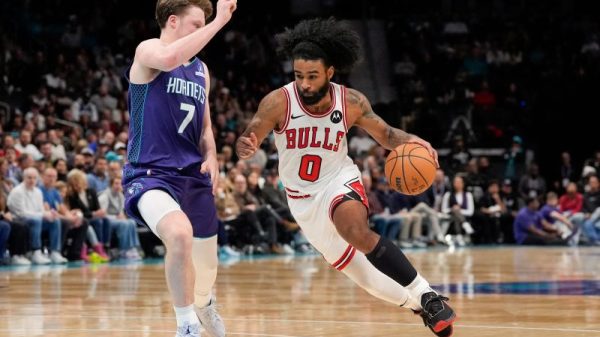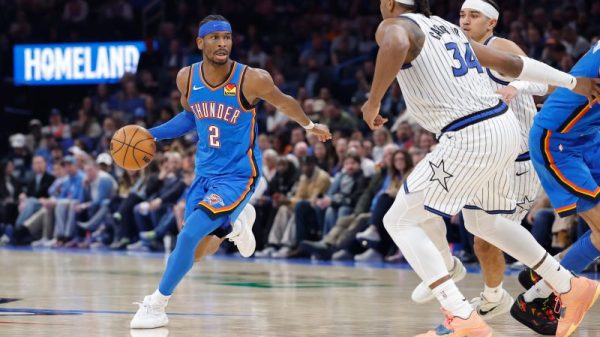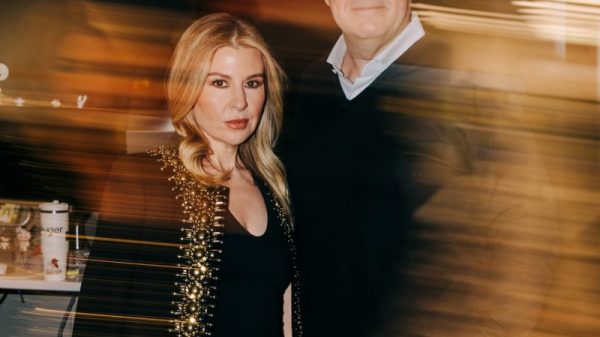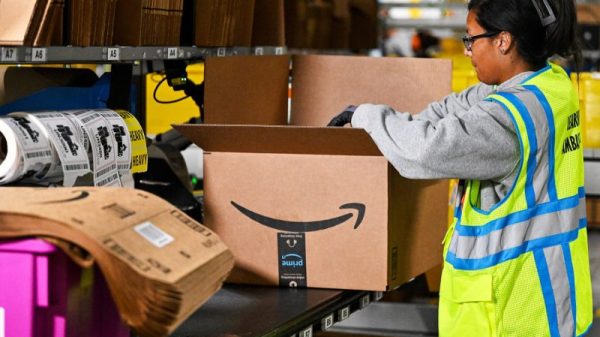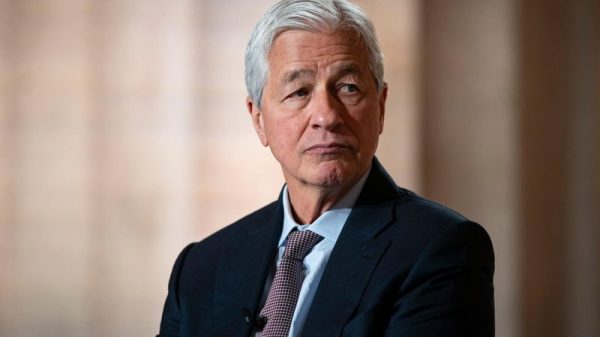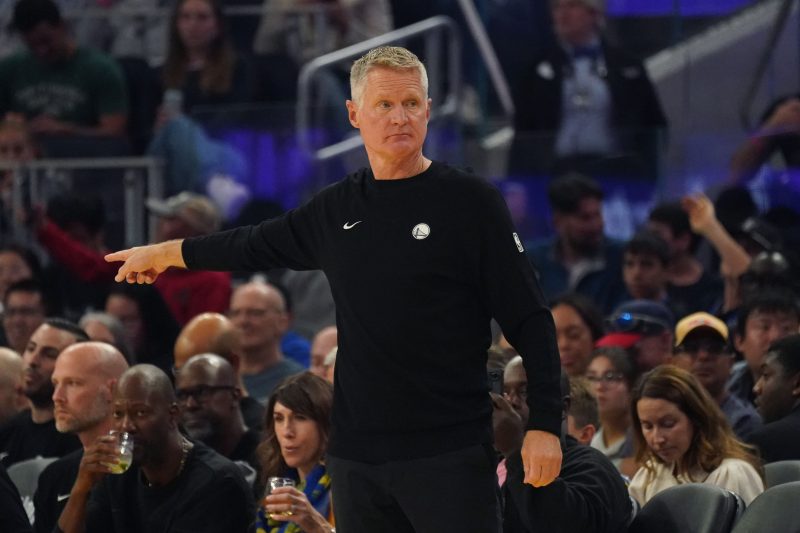Parent the child you have, not the one you wish you had.
Kirsten Jones thinks the line is so important, she repeats it within the text of her book.
“Just because she doesn’t have the same passion for the game that you or her siblings might have doesn’t make her ‘damaged goods,” Jones writes in “Raising Empowered Athletes.” “It simply makes her like all the rest of us: struggling to find our places in the world.”
Jones is a former elite Division I athlete. She has been a coach of kids, and she’s a mother of three.
“I feel like I learned all the chapters in the book,” Jones, now a motivational speaker and performance coach, tells USA TODAY Sports. “I’ve had the kid who was the star, I’ve had the kid who didn’t play. I’ve flown to tournaments where I sat on the sidelines for five days and she didn’t even touch the floor. And it sucks. And the tears in the car ride home for both of you are hard.”
Her book is not so much a guide, but a pep talk. Parenting, as we discover, is an evolution. It involves patience, compromise and the right amount of levity and humor. We don’t start off knowing everything, and we never reach perfection.
But we get better at it if we’re willing to learn along the way.
“The joke is when you get pregnant, everyone hands you What to Expect When You’re Expecting, and you think, ‘Yes! I have all the answers and this is going to be so easy,’” she says. “And then you get to kick and chase and there’s some yahoos standing next to you on the sidelines going, ‘Well, they’re four. You’re not going to do this rec thing, are you?’”
Jones has raised three athletes (25, 22 and 19) with her husband, Evan. Here are 10 tips she has learned about how we can raise empowered ones, whether they choose to keep playing or not:
1. We start off with a dream; you never know where it might take you
Jones grew up in the 1970s in Missoula, Montana, where she rode horses, skied and played basketball before she discovered her passion.
“I didn’t actually find volleyball until high school because it became a sanctioned sport my freshman year in 1984,” she says.
Her persistence got her to two Division I college programs, but her story is more about the pursuit of a dream that didn’t quite get fulfilled.
“I think we should all have aspirations and just because you don’t play for Duke or Real Madrid or wherever, I believe these are all things that you’re going to take whatever you learn and that you’re going to use it for whatever’s next,” she says. “I saw a mom post the other day about, ‘My 16-year-old just quit. All that money wasted.’
“You’re missing the point. Really? Did you ever sign a contract when she was five, that she was going to have to go the whole way or you weren’t gonna invest in it?”
When we dream, we find out if we’re intrinsically motivated to pursue. Kirsten signed herself up for a volleyball camp at UC San Diego, and flew there from Missoula herself.
Two years later, she tried out for the junior national team in Colorado Springs (“with my barely matching knee pads.”) Although she didn’t make the team, she chased down Sue Snyder, then an assistant coach at San Diego State, at the Denver airport.
“Can I come to San Diego State?” she asked.
2. Make sure it’s your kids’ dream, and not yours
Jones’ father, a pulmonologist, was all about education, but also learning and growing at whatever you did.
There were no expectations for activities Kirsten and her siblings tried. They just needed to be all in on whatever they did.
“My parents were actually more piano and ballet, which was for me, like nails on a chalkboard,” she says. “(But) we finish what we start. So if you signed up for karate and you don’t like it a month in, OK, great, well, let’s just finish the season and then we can pick something else.
“My dad always said, ‘If you’re playing for me, you should stop.’”
Parenting, Golden State Warriors coach Steve Kerr told Jones and co-host Susie Walton on their “Raising Athletes” podcast, is a lot like coaching.
“You’re not doing things for your kids,” Kerr said. “You’re trying to give them perspective and then become the best versions of themselves so that they’re making their own decisions and they’re doing the things that can help them be successful. But they’re the ones who are actually doing it.”
Jones says we’re like the guardrails.
3. As parents, we always have to be prepared to pivot
Kerr was the kid who threw his glove and cried when things didn’t go well.
“I had the worst tantrums during sports,” he told Jones and Walton. “I was so competitive that I would literally lose my mind.”
He says his parents never said anything about it until they got home. When a few hours passed, and he would calm down, they might ask: “What are you thinking about when you’re crying?”
“They were very thoughtful about it,” Kerr said. “Sit and observe, support but you don’t have to constantly be telling them what to do and then you help them find their own way.”
Two of Kerr’s kids, Nick and Madeline, played Division I athletics, and Nick went on to coach in the NBA G League. But his youngest child, Matthew, wanted to play soccer to get a uniform like the one he saw his sister had.
When Matthew was about 5, Steve and his wife, Margot, put him in his first game, and watched their son lie down and start picking daisies.
“You’re not really into this, are you?’ Kerr said to him.
“No.”
It was the last sport he ever played.
“I was fine with that,” his dad said. “He’s a writer now. He was writing stories from an early age and making movies on his home video camera and that’s what he loves and so we encouraged him to do that.”
4. Check yourself before you check on them
Jones’ two sons, Caelan and Parker, have played Division 1 basketball. Her daughter, Kylie, had an experience like a lot of our kids: She was on a highly competitive travel team but didn’t get into games as much as many of the other kids.
“We didn’t even try volleyball until she was 12,” Jones says. “And that was a problem because everybody else had started at seven. And so she was behind. But I figured, I didn’t start until I was 14 and it worked out for me. Was she the best athlete? No. Did she pick it up right away and it all fell into place? Not really. And then COVID hit, and it was rough.”
But the pandemic provided one respite: No parents were allowed in the gym. We don’t think our kids can hear us, Jones says, especially if we’re not the loudmouth who’s constantly yelling.
“That’s the only voice they hear,” she says. “And their head’s on a swivel. She was rolling her eyes. I think even having me in the gym was stressful to her because what if I’m not living up? They don’t need the pressure.
Instead, when practice is over, ask your kid for permission before you offer advice.
If they say no? “Then you zip it and call a friend, talk to your spouse, go for a walk. Allow it to be their journey.”
5. Be a friend as well as a parent
“The dad and me says, ‘You should have done X, Y and Z,’” Jones’ husband, Evan, might ask their kids.
“The friend in me says, ‘Wow, that was probably a really hard situation.’”
Evan had played basketball professionally in Europe, where he met Kirsten. He played guitar on the side. Sports, like his music, was intended to be an activity to relieve stress, not provide it.
As Caelan’s sixth grade assistant coach, he noticed the complex offense and defensive schemes the head coach devised. He politely asked him for a minute before a game.
“Three things,” Evan told the team. “Talk to each other, space out and be aggressive. Any questions?”
“That’s all?” asked one kid.
“That’s all.”
6. Have a growth mindset: Sports is resilience training for life
Kirsten started her career working for Nike, where she loved to help professionals push through obstacles in their life.
In her book, she writes that a growth mindset is an athlete’s willingness — and ability — to be curious about learning new skills.
“I never made the national team, but look where I landed,” says Jones, who wound up playing volleyball at San Diego State and William & Mary. “It got me to Nike. It got me into two very good schools and a great education.”
And it got her daughter home.
7. We can be the sounding board while allowing our kids to be the fixers
By the time Kylie was a senior in high school, she had made the top club volleyball team, but she was toward the back of the roster. Despite the team flying all over from their Southern California base, including to Hawaii, she was shagging balls for other players at 5:30 a.m. practice.
“I said, ‘Kylie, I’d much rather you use your time for something you’re interested in where you can start to build the muscle that will help you figure out what you want,’” Jones said. “Unless you really just want to be on the roster.”
“I don’t want to do this,” her daughter said.
Here came the pivot, to film school at Loyola Marymount University, where she is now studying.
Remember Steve Kerr’s son who picked daisies on the soccer field? He went to USC film school and worked in the writers’ room for Ted Lasso.
8. Find things to do independently from watching your kids play sports
Kirsten Jones says her mom and dad barely attended her games, not because they didn’t care, but because there were other things going on in their lives.
U.S. Soccer icon Abby Wambach recently said in her podcast that, as parents, we should never even go to practice. We want our kids’ motivation to come from within, she says, not from us.
“If you haven’t been at practice,” Wambach said, “then you don’t know what the coaches are saying. You don’t know what they’ve been working on, which is good because it’s your child’s life and their experience.”
Our children have a right to play without us shouting over the coach. It’s also healthy for us to have something we love to do that happily prevents us from being there all the time.
“When do you work out?” Jones asked a woman in Colorado who called her to ask if it’s OK if she didn’t stay and watch practice.
“I don’t, because I just go to different practices,” was the reply.
“Go run,” Jones said. “Show your daughter that you’re important too.”
9. Find things you can do toegher that aren’t sports
Maybe you’re a coach and have to be there all the time. Or you’re like the parent, a former collegiate athlete, who told Jones: ‘I am embarrassed to admit the number of hours I’ve lost sleep over what team my nine-year-old has got to make.”
Her advice? Go on a camping trip. “You will spend time alone and be where he is.”
We all have to be prepared, when we’re camping or otherwise, for them to say: “Well, Dad, I don’t really like soccer, but I know it makes you happy. So I’ll play soccer.”
You can say, “You don’t have to do that.”
10. It’s never too late to change – or adjust – how to be sports parents
When Jones was pitching her book idea, some suggested it should be called, “How to raise a pro athlete.” Her intention was the opposite.
The book is about how we can survive, and thrive, when our careers end.
We want our kids to have hurdles, but sometimes we need to just lower the bar. Perfectionist parenting, she says, is too hard.
Susie Walton, the late Basketball Hall of Famer’s ex-wife who has hosted podcasts with Jones, likes to say: “If you’re perfect, get off at the wrong exit every once in a while and say out loud, ‘Oops, I made a mistake.’”
Jones says one dad who has played in the NFL told her he was embarrassed because he yells at his young athletes on the car ride home.
“If you fix that now, they won’t even remember,” she says. “But we’re in the moment with our kid, and well, this is it. No. It’s a moment. It’s not the moment.”
Like with the equestrian athletes Jones sees, it’s not often about how high the fences are. Our kids just want to jump high enough.
Steve Borelli, aka Coach Steve, has been an editor and writer with USA TODAY since 1999. He spent 10 years coaching his two sons’ baseball and basketball teams. He and his wife, Colleen, are now sports parents for two high schoolers. His column is posted weekly. For his past columns, click here.







